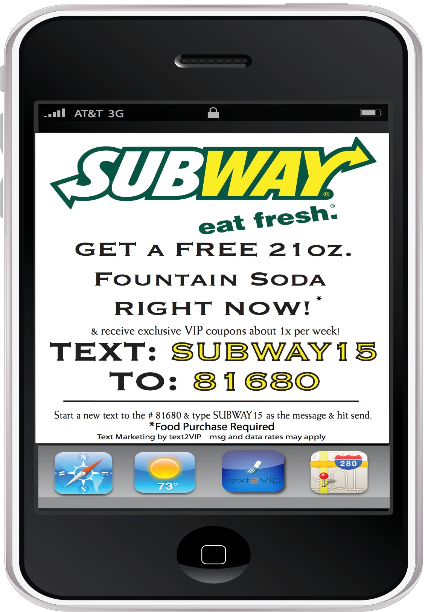"To enjoy pastor.........text 5045 to 4100. Cost #50 per month". This is one of the regular promotional ads most Nigerian phone subscribers get on their mobile phones daily.
Over the years the techniques of advertisement have evolved to ways that bring ads to people without appearing intrusive, unnecessary and like a spam.
Being the custodian of huge data on customer information is both a big responsibility and also a fertile land, under legal terms and conditions, to generate income in the area of advertisement. Companies like Google, Facebook, Amazon and so on have put up several technological strategies for gathering data on hundreds of millions of customers that use their services. These involve collating the customer's name, phone numbers, location, occupation, level of education and information regarding their behaviour towards goods and services both offline and online, and so many other information. However, these companies don't stop in the data gathering process; they go further to process this huge amount of data to generate what I call "goods and services consumption" profile of each customer. With such profile database, these companies target their customers with adverts that cover their areas of consumption interests; this makes the adverts serve the purpose of solutions to the problem of making the best decision in the 'goods and services' market, instead of being an intrusion to these customers' normal activities. In addition, they use special software programs to track the behaviour and response of the customers to the promotional contents targeted at them and subsequently modify their advert strategy at them based on the profiled response. Ever wondered why someone going through Amazon's website from Nigeria would see majorly adverts from Nigerian businesses and not those in the US? This is because these companies have optimized their ad targeting strategy to suit the taste of whoever was visiting their sites or using any of their services.
And this is where our Nigerian mobile telecom companies are far behind. Back in 2009, the
Nigerian Communication Commission mandated every mobile network operator in the country to register its subscribers on their data: I registered my phone number with the network I'm subscribed to during which my name, age, address (state of origin and residential address), biometric finger print, webcam photo, occupational status (employed, student, unemployed) and other pieces of information were requested and which I provided. But it still baffles me when our Nigerian mobile telecom companies still send
funny, annoying, unsolicited and intrusive promotional contents like the ones I receive daily which do not target my goods and services taste, despite having such a rich customer database.
 |
| SMS/MMS ad. Image credit to Onbile |
Though online advertisement is slightly different from the SMS and MMS (short message service and multimedia messaging service) advertisement which is one of the advert service platforms run by Nigerian mobile telecom companies, it should adopt the same strategy of sending ads optimized for the taste of different segments of a customer base, employed in online advertising. These companies can profile their subscribers using the information obtained during the registration of their phone numbers into different groups of "goods and services tastes" such that when targeted with certain ads there would be a robust response to them; they can also develop a program that would monitor the response of these different groups of phone subscribers to ads and then use the information gathered to target ads highly relevant to their tastes; hence, these mobile telecom companies can then sell phone numbers of subscribers with a predicted high taste for particular goods and services to the providers of such goods and services, instead of the current selling of random, unprofiled phone numbers to random advertisers (I don't really like it when I, a student, receive messages on my phone telling me to call a particular code to know more about breastfeeding--I'm not a woman for God's sake, let alone a breastfeeding mother!). However, there are adverts that are general and therefore targeted at every customer.
In addition, any SMS/MMS advert sent to my mobile phone should not be what I would have found out about without it being sent; it should not be what I have already seen frequently advertised on TV or online, because I will not respond to it, if I have already done so through another means. Instead, SMS/MMS adverts should, apart from being highly relevant to me based on my age bracket, occupation, gender, location (where I'm currently residing), be the premium link to the goods and services being advertised: by this, I mean the goods and services should be new in the market, and there should not be many other easy ways of getting to them (for paid services in Nigeria because most people would opt to get such services --music, book, and so on--free if there are means to do so; however, goods and services available for purchase through several outlets can also be advertised via SMS/MMS as it is just another medium of advertisement). Also, such SMS/MMS adverts should not be patterned to exploit customers as is the case with most of the promotional contents from our Nigerian mobile telecom companies currently. Why would I pay fifty naira for a song to be used as caller tune for just one month---it should be for life. If I choose to buy another song for caller tune I do so, and then put the old ones into a form of my 'caller tune library' which I can reuse again as my caller tune; the mobile telecom companies in Nigeria have to make something like this possible. Replicating this suggestion in other SMS/MMS promotional contents by the Nigerian mobile telecom companies will begin to give their customers true value for their money if they choose to respond to such adverts.


No comments:
Post a Comment